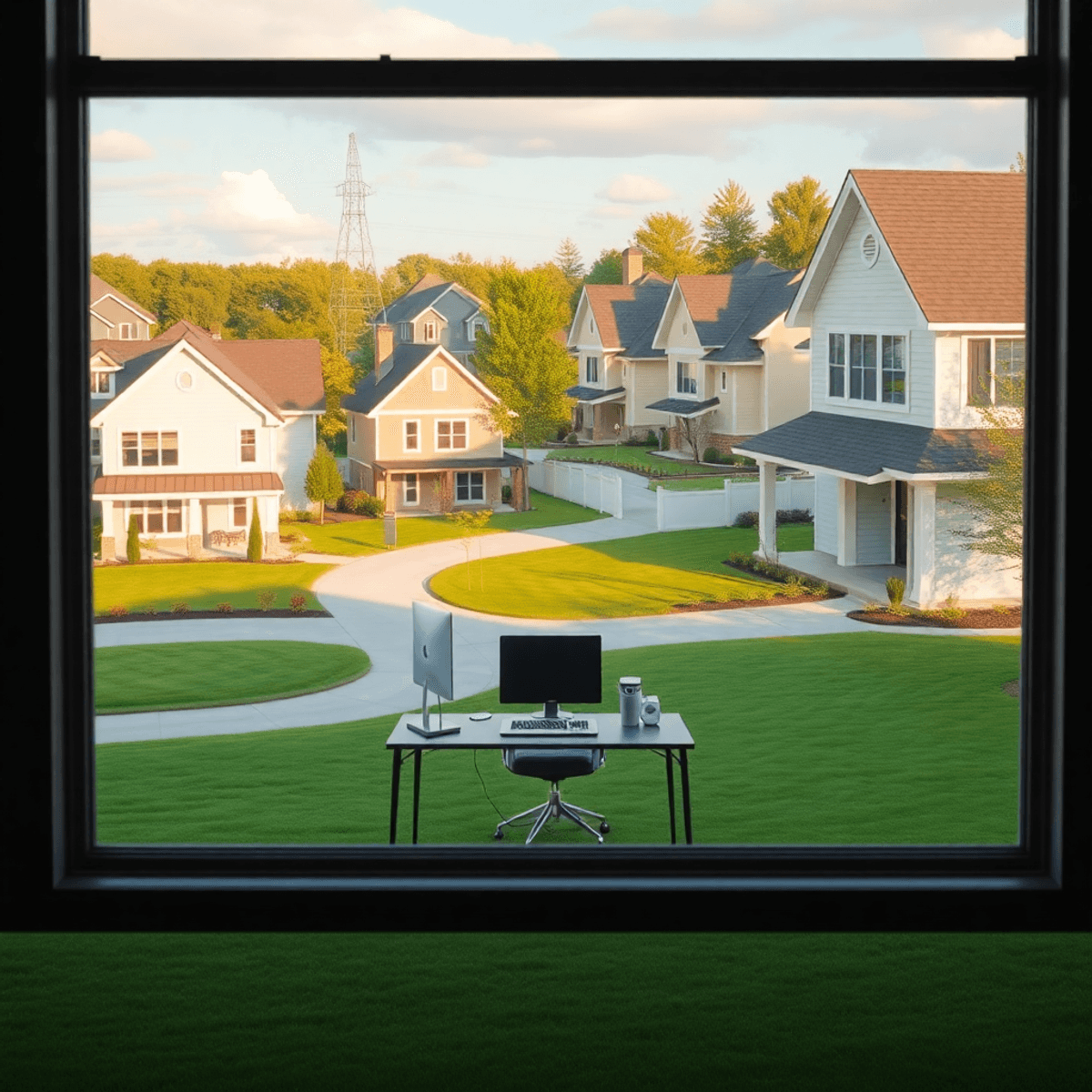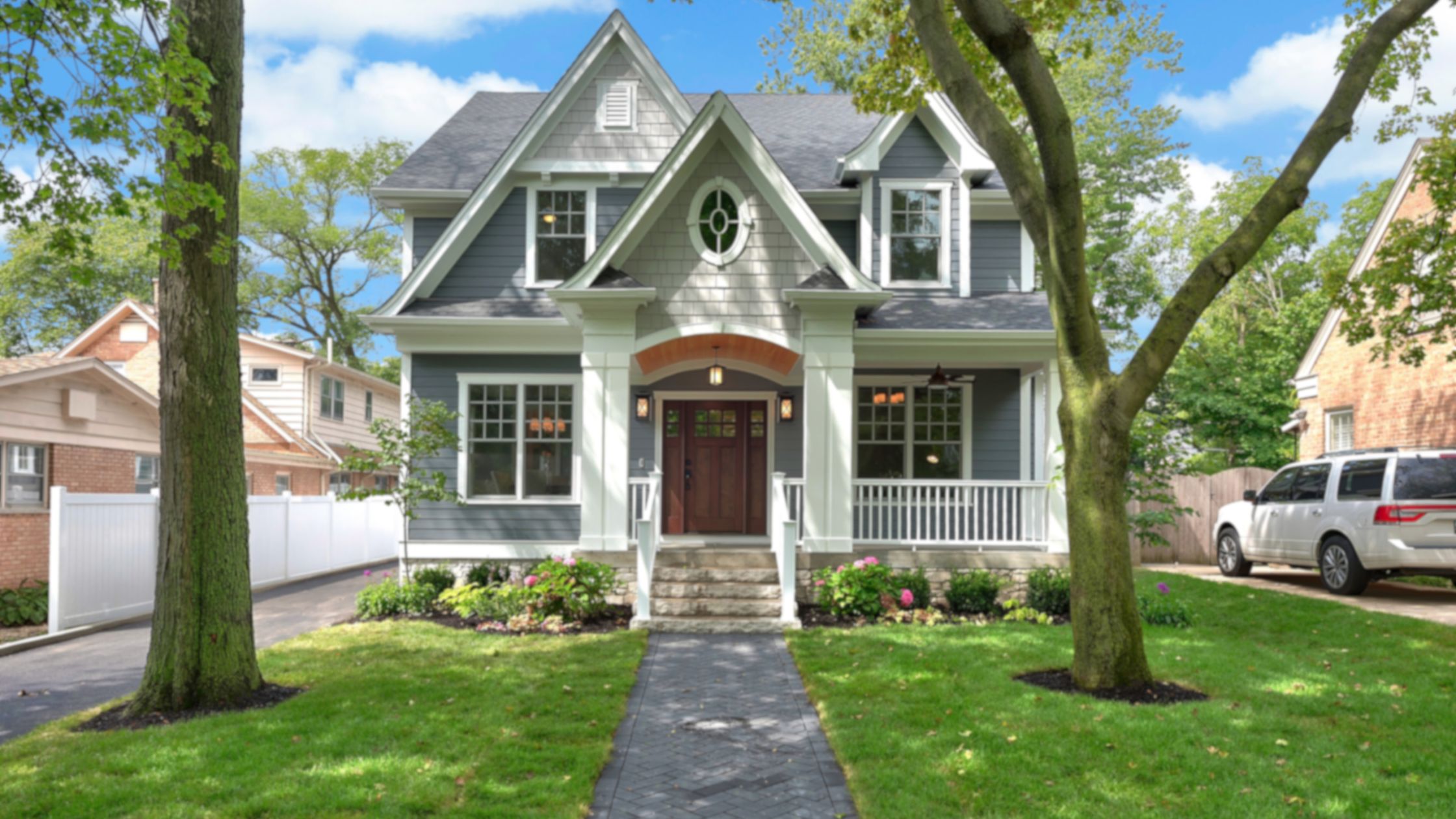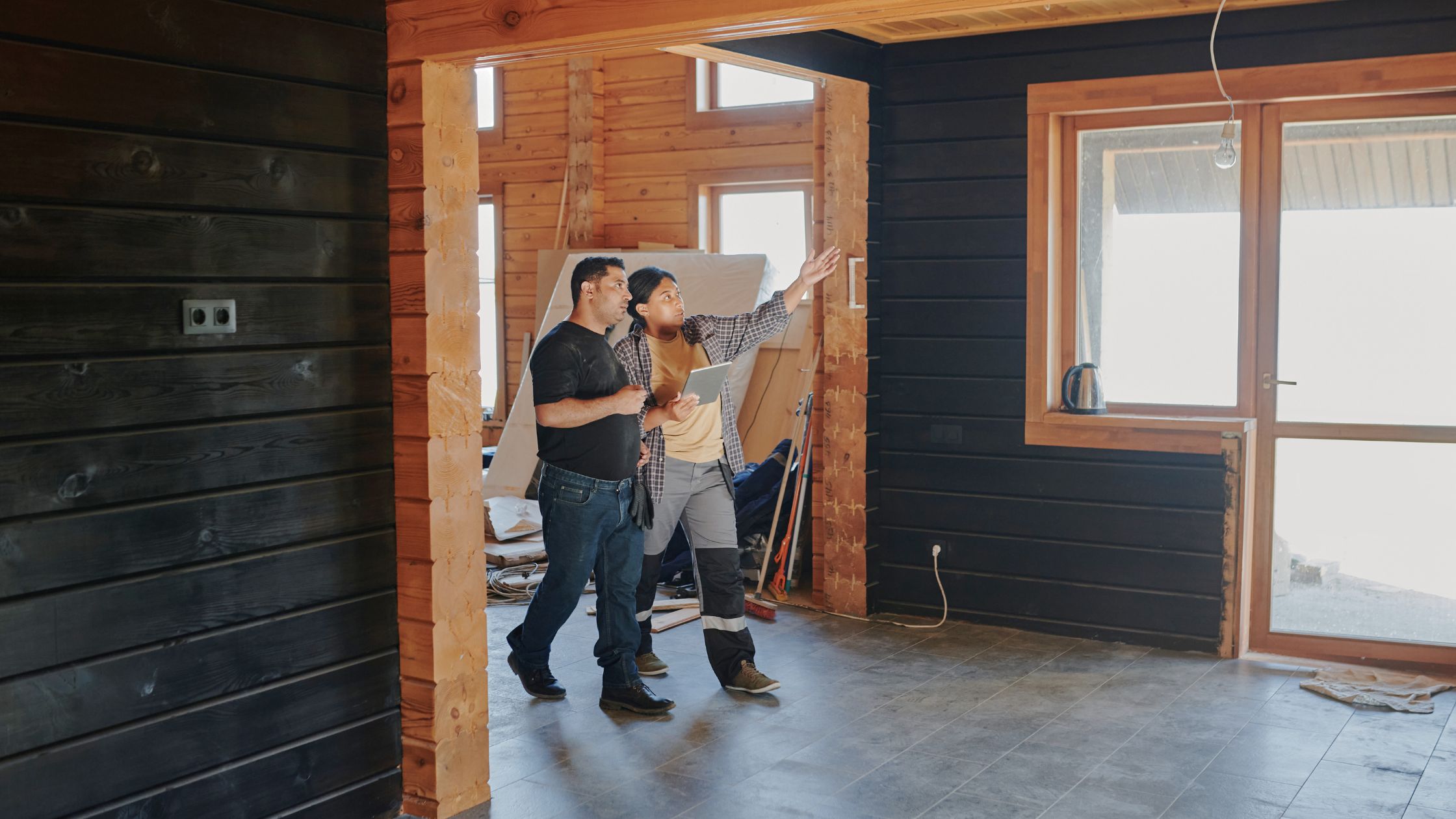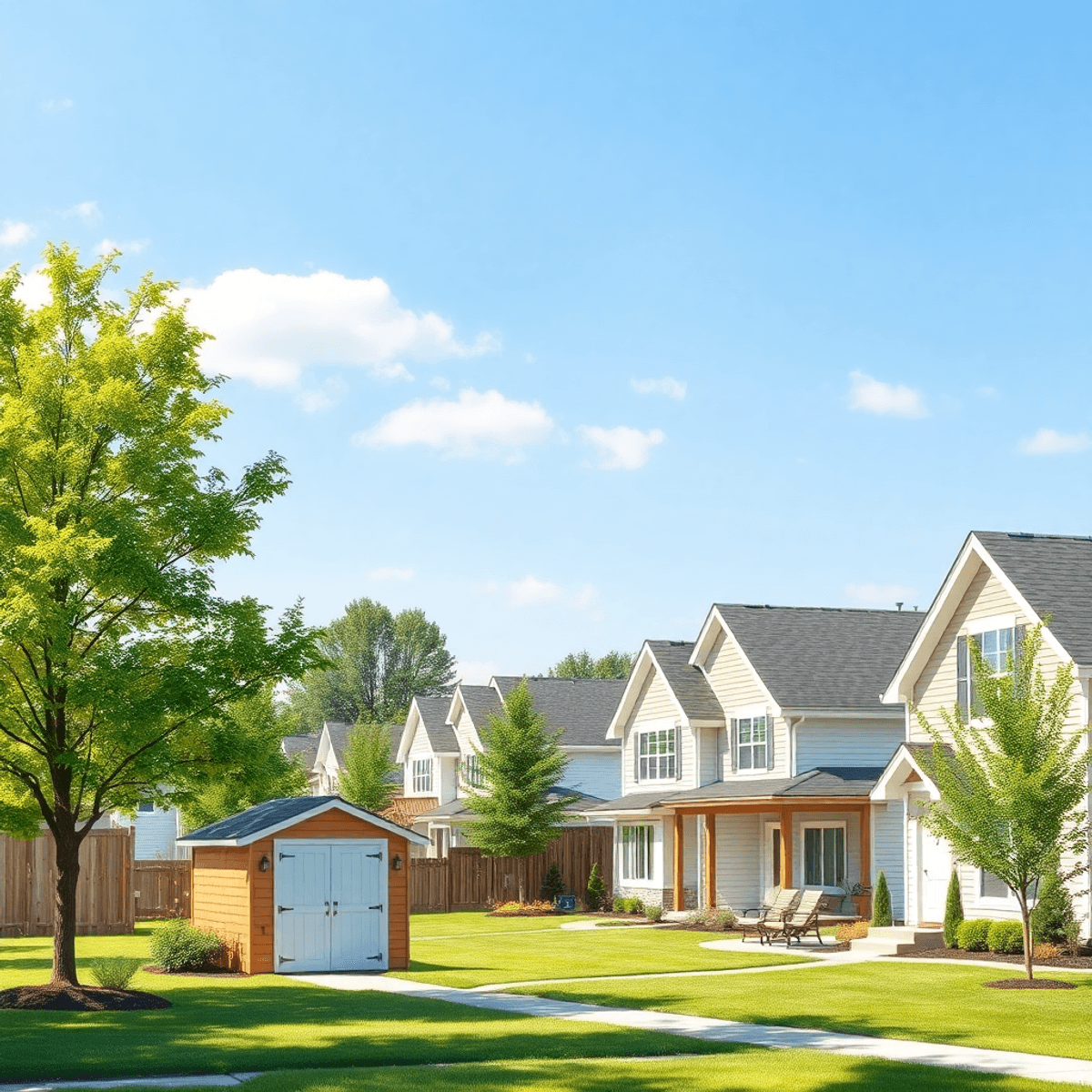Big City Perks, Suburban Space: The Remote Work Homebuyer Trend
The trend of remote work has significantly influenced homebuyer preferences, leading to a noticeable shift from urban to suburban living. As more professionals embrace the flexibility of working from home, they seek environments that offer both tranquility and convenience. Suburban areas are becoming increasingly attractive due to their spacious properties, quieter lifestyles, and access to amenities such as shopping, dining, and entertainment.
This growing demand for suburban homes often comes with the need for renovations to create ideal living and working spaces. Choosing the best materials for your Illinois renovation is crucial. The right materials not only enhance the aesthetic appeal of your home but also ensure durability and cost-efficiency over time. However, selecting suitable materials can be challenging due to the state’s diverse climate conditions and strict building standards.
Key takeaway: Remote work has reshaped the real estate market. A growing trend of homebuyers is now seeking larger properties and dedicated office spaces in suburban areas, highlighting a significant change in housing demand patterns.
The Appeal of Suburban Living for Remote Workers
Benefits of Suburban Living for Remote Workers
Remote workers are increasingly drawn to suburban living due to the unique benefits these areas offer. Suburban living provides a quieter lifestyle and more space, which are highly desirable for those working from home. The increased demand for larger properties is driven by the need for dedicated office spaces and outdoor areas where remote workers can relax and recharge.
Access to Amenities in Suburban Areas
Suburbs are equipped with a wide range of amenities that cater to the needs of remote workers:
- Shopping: Suburban areas often feature large shopping centers that include essential stores and specialty shops.
- Dining: A variety of dining options ranging from fast food to gourmet restaurants.
- Entertainment: Parks, theaters, and recreational facilities offer opportunities for leisure activities.
- Healthcare: Access to top healthcare facilities is another significant advantage.
These amenities create a convenient living environment that supports both work and personal life balance.
Suburbs as Emerging Job Centers for Fortune 500 Companies and Tech Firms
The presence of major corporations in suburban areas has transformed them into emerging job centers. Fortune 500 companies and tech firms are increasingly establishing offices in the suburbs, creating local employment opportunities:
- Atlanta suburbs such as Alpharetta and Roswell exemplify this trend. These areas boast family-friendly environments, excellent school districts, and modern infrastructure.
- Job Opportunities: The influx of enterprises into suburban regions provides ample job opportunities close to home.
Home Remodeling Opportunities in Suburbs
The demand for larger properties also opens up opportunities for home remodeling. Many remote workers are looking to transform their homes into more functional spaces. This could involve transforming your basement into a functional living space or utilizing Illinois homeowner programs for affordable remodeling.
Such transformations not only enhance the livability of your property but also provide additional living areas such as family rooms or home offices. For those considering purchasing older properties in the suburbs, there are plenty of resources available on rehab and renovation, offering adaptive reuse strategies and tackling zoning challenges for successful renovations.
The combination of local job centers, residential amenities, and home remodeling opportunities makes suburban living an attractive option for remote workers seeking a balanced lifestyle.
Popular Suburban Locations Attracting Homebuyers
The Atlanta Suburbs are gaining significant traction among homebuyers, with Alpharetta and Roswell standing out as prime examples. These areas are attracting families and professionals alike due to their combination of space, amenities, and quality living conditions.
Alpharetta: The Technology City of the South
- Family-Friendly Environment: Known for its safe neighborhoods and vibrant community life. This family-friendly layout is ideal for raising children.
- Excellent School Districts: Home to top-rated public schools with high standardized test scores.
- Modern Infrastructure: Equipped with high-speed internet and advanced power systems, making it ideal for remote work. Families can also explore Illinois grants for home improvement projects, which can significantly enhance their living conditions.
Roswell: A Blend of History and Modernity
- Historical Charm: Offers a mix of historical sites and modern conveniences.
- Educational Excellence: Features some of the best schools in Georgia, appealing to families prioritizing education.
- Community Amenities: Boasts parks, recreational facilities, and shopping centers catering to diverse lifestyles. For those considering remodeling or upgrading their homes in this area, eco-friendly remodeling options are available that promote sustainability while enhancing property value.
These Atlanta suburbs exemplify the shift towards suburban living, providing all the perks needed for an enhanced remote working experience while maintaining a high quality of life.
Increased Demand for Larger Homes and Office Spaces Post-Pandemic
Remote work has triggered a clear surge in demand for larger homes. Homebuyers are looking beyond conventional square footage—space is no longer just a preference, it’s become a necessity. The shift is especially obvious in suburban developments, where the layout and features of new homes reflect changing priorities.
Dedicated Office Spaces
Buyers want floor plans that include private, soundproof rooms specifically for work. The days of makeshift desks in spare corners are fading fast. Developers have responded with:
- Purpose-built offices that feature built-in shelves, ample electrical outlets, and large windows for natural light.
- Flexible bonus rooms or dens that can serve as Zoom-friendly backdrops.
- Dual-office layouts, recognizing that many households now have two remote professionals under one roof.
Suburban Developments Cater to Remote Work Needs
Suburban communities are raising the bar by integrating amenities that directly support the remote work lifestyle.
- High-speed internet infrastructure ensures seamless video calls and large file uploads, a non-negotiable for remote workers.
- Sound insulation between rooms keeps meetings confidential and minimizes distractions from family life.
- Outdoor living spaces such as covered patios or screened porches become extensions of the home office, offering fresh air without sacrificing productivity.
A typical development focused on “Big City Perks, Suburban Space: The Remote Work Homebuyer Trend” will combine walkable paths, shared green areas, and community centers with co-working lounges or business hubs. These features allow residents to separate home life from work while avoiding lengthy commutes.
Today’s buyers aren’t just shopping for a house—they’re selecting an ecosystem built around flexibility, privacy, and professional productivity. This includes maximizing natural light with sunroom additions or enhancing curb appeal through exterior improvements.
Moreover, many are considering bathroom makeovers as part of their home buying process. With the right bathroom tile, these renovations can significantly increase a home’s value.
As families seek to create more comfortable living environments suited to both work and leisure, they are also exploring options like energy-efficient heat pump water heaters which can greatly reduce energy bills while providing consistent hot water supply.
The trend shows no sign of slowing as both employers and employees embrace long-term remote or hybrid arrangements.
Energy-Efficient Homes and Infrastructure Supporting Remote Work Needs in Suburbs
Suburban homes are increasingly being designed with energy-efficient features, making them particularly appealing to remote workers who value sustainability. Solar panels have become a common installation, offering homeowners the benefit of reduced energy costs and a lower carbon footprint. Electric car stations are another popular addition, catering to the growing number of remote workers who drive electric vehicles.
Remote work demands reliable internet connectivity, which suburban developments are addressing with tailored Wi-Fi systems. These systems ensure high-speed internet access throughout the home, accommodating multiple devices and large data transfers that remote work often requires. Enhanced Wi-Fi infrastructure is crucial for video conferencing, cloud-based applications, and other online tasks integral to remote work.
Key features that support remote work needs in suburban areas include:
- Solar Panels: Providing sustainable energy solutions that reduce reliance on non-renewable resources.
- Electric Car Stations: Encouraging eco-friendly transportation options.
- Advanced Wi-Fi Systems: Ensuring seamless internet connectivity for uninterrupted remote work.
These elements not only align with the environmental goals of many remote workers but also enhance the overall quality of life by offering modern conveniences and boosting property values. The integration of these technologies reflects a commitment to both sustainability and the practical demands of working from home.
Suburban developments cater specifically to these needs, creating an environment where remote workers can thrive both professionally and personally. This trend underscores the importance of energy-efficient infrastructure as a key consideration for homebuyers in the current real estate market. Moreover, Illinois homeowners looking to further enhance their homes can explore various practical renovation ideas aimed at lowering energy costs while also improving overall energy efficiency.
Enhanced Transportation Options Making Suburbs Attractive to Professionals and Families
Expanded highways and public transit extensions have significantly improved connectivity in suburban areas. These developments make suburbs more accessible for commuters, enhancing their appeal to young professionals and families who seek a balance between spacious living and city perks.
Key Improvements:
- Expanded Highways: Modernized and widened highways reduce travel time, making daily commutes smoother and less stressful.
- Public Transit Extensions: Extended rail lines and bus routes provide reliable alternatives to driving, connecting suburban neighborhoods with urban job centers efficiently.
Examples of Impact:
- In the Atlanta metro area, expanded highways like the I-285 perimeter and new express lanes on GA 400 facilitate easier access to downtown Atlanta from suburbs such as Alpharetta and Roswell.
- Public transit extensions by MARTA (Metropolitan Atlanta Rapid Transit Authority) have improved connectivity to suburban areas, offering a viable option for those preferring not to drive.
These transportation enhancements support the growing trend of remote work by providing flexible commuting options when occasional office visits are required. This increased accessibility makes suburban living a practical choice for many professionals, aligning with their lifestyle preferences while maintaining proximity to essential urban amenities. With better connectivity, suburbs become vibrant communities where residents can enjoy space, comfort, and convenience.
Moreover, studies have shown that improved transportation options not only enhance property values in these areas but also foster a sense of community among residents (source).
Remote Work’s Lasting Influence on Real Estate Dynamics Between Suburbs and Urban Markets
Remote work has reshaped real estate dynamics between suburban and urban markets in significant ways.
1. Housing Demand
There’s been a noticeable shift in housing demand, with more buyers opting for suburban homes that offer greater space and comfort. This trend has led to increased competition and a rise in home prices in many suburban areas. In response to this growing demand, Illinois is considering a middle-income housing program aimed at making home ownership more affordable for middle-income residents.
2. Pricing Trends
As suburban demand surges, pricing trends have adjusted accordingly. Suburban properties are seeing higher appreciation rates, while some urban markets experience slower growth or even slight declines in property values. It’s worth noting that Illinois has one of the most unstable housing markets, which adds complexity to these pricing trends.
3. Rental Markets
The rental landscape is also evolving. Urban areas, traditionally known for their high rental demand, are witnessing fluctuations as remote workers move to the suburbs. In contrast, suburban rental markets are growing as more people seek temporary housing solutions before committing to long-term purchases. For those navigating this shifting landscape, our comprehensive guide on renting in Illinois offers valuable insights into the state’s evolving home rental trends.
The Big City Perks, Suburban Space: The Remote Work Homebuyer Trend continues to influence these dynamics.
Urban markets may need to adapt by enhancing livability factors such as green spaces and mixed-use developments, aiming to retain residents who value city life but now prioritize space and flexibility due to remote work arrangements.
The Future of Work-Life Balance: Embracing Space, Community Amenities, and a Hybrid Work Model
The hybrid work model is reshaping homebuyer preferences, with an emphasis on space and community amenities. Remote workers now prioritize:
- Larger homes with dedicated office spaces
- Energy-efficient features like solar panels and electric car stations
- Enhanced Wi-Fi systems for seamless remote work
Suburban areas offering these benefits are becoming increasingly attractive. The ability to balance Big City Perks with suburban space is driving this trend. Access to:
- Excellent school districts
- Local shopping and dining options
- Modern infrastructure
These factors are critical in shaping the future of work-life balance for homebuyers. The demand for properties that support a flexible hybrid work model is expected to grow, influencing real estate dynamics significantly.
news via inbox
Nulla turp dis cursus. Integer liberos euismod pretium faucibua
